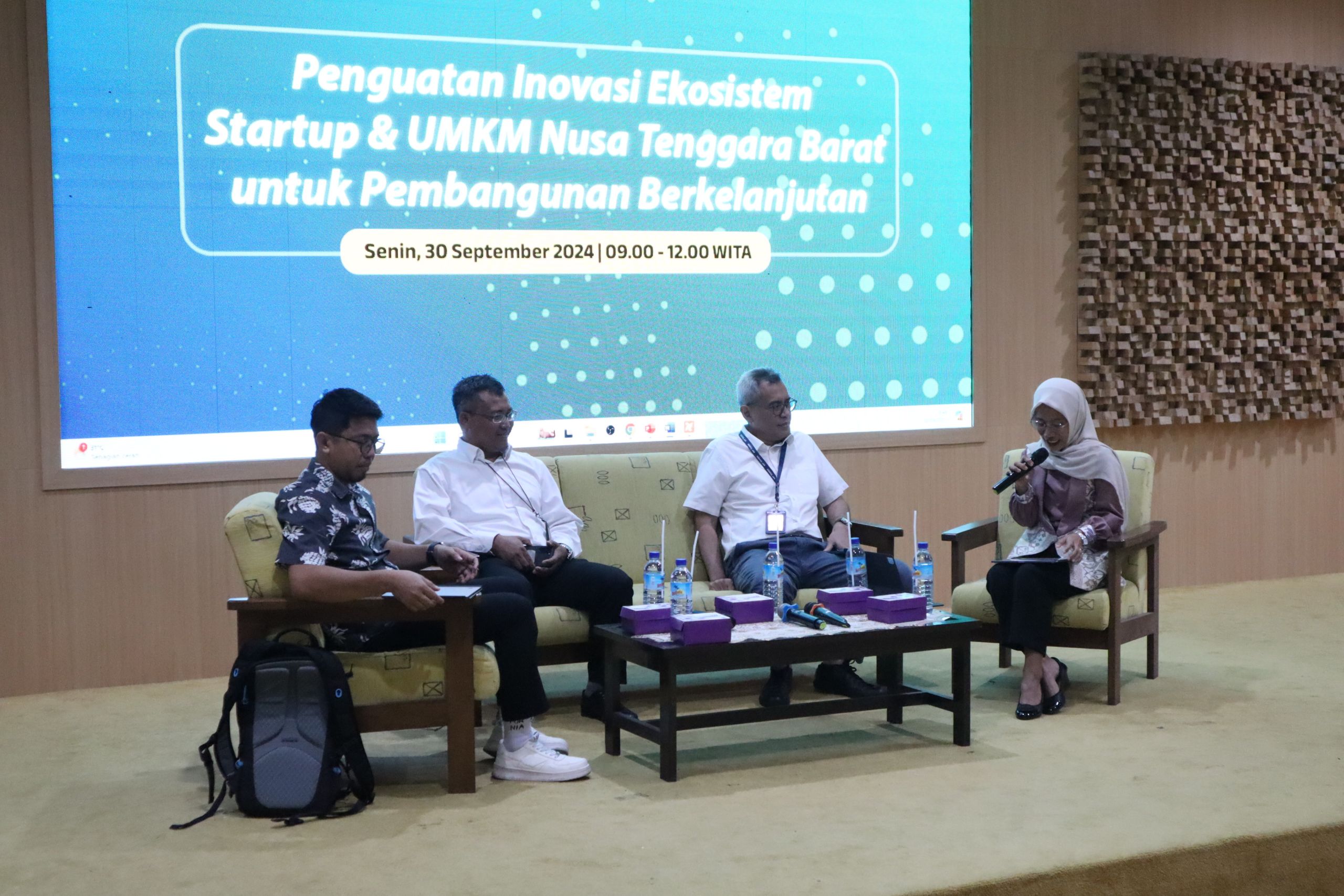Collaboration of Kubinov LPPM Unram with Amvesindo and OJK: Encourage the Strengthening of Innovation of Startup Ecosystems and UMKM for Sustainable Development

Mataram, University of Mataram – The Research and Community Service Institute of the University of Mataram (LPPM Unram) successfully held a seminar entitled “Strengthening the Innovation of the Startup Ecosystem and UMKM for Sustainable Development” with great success at Unram on Monday, September 30, 2024.
The event was attended by various important parties, including the Financial Services Authority (OJK), the Indonesian Venture Capital Association for Startups (Amvesindo), students, and representatives of UMKMs assisted by the Business and Innovation Incubator (Kubinov) LPPM Unram.
In this activity, Prof. Dr. Ir. Sukartono, M.Agr. as the Head of LPPM Unram was accompanied by the Secretary of LPPM Unram, Prof. Dr. Ir. I Gusti Putu Muliarta Aryana, M.P., and Dr. Didy Ika Supryadi, SE., MM. as the Head of Kubinov Center LPPM Unram.
The speakers in this activity included Nurwahyu Baharudin explaining about Venture Capital; Danu Saputra and Idham, M.Kom. with topics related to technology and innovation support required to strengthen the small and medium business ecosystem; and Donald Wiraharja, B.Sc., M.Sc. explaining about local UMKM opportunities in Indonesia.
Then, Ida Bagus Made Indra highlighted the importance of maintaining venture stability in Indonesia and Iskandar Sukmana, M.Pd. closed the session with an invitation for startups and UMKM.
The seminar was officially opened by the Head of LPPM Unram, Prof. Sukartono. In his speech, he emphasized the importance of innovation and collaboration between startups and UMKM in supporting sustainable development. Prof. Sukartono also expressed his hope that this seminar could be a bridge for industry players to share experiences and build a strong network.
“As the Head of LPPM Unram, I would like to emphasize our commitment in increasing the capacity of local UMKMs through the Kubinov program. This program is designed to encourage innovation and collaboration between business actors, provide skills training, and access to resources needed to develop competitive products and services,” explained Prof. Sukartono.
“By involving various parties, including academics, practitioners, and communities, we believe that Kubinov can be a key driver in strengthening the UMKM ecosystem, so that they are able to contribute significantly to economic growth and community welfare in the region,” he continued.
The event attracted a lot of enthusiasm, with hundreds of participants actively participating in the panel discussions and Q&A sessions. Several well-known resource persons from OJK and Amvesindo also shared insights on the challenges and opportunities faced by UMKM and startups in facing the digital era and globalization.
Seminar participants were also given the opportunity to take part in practical workshops, designed to enhance their skills and knowledge on developing innovations that can be applied in their businesses. Interactive discussions allowed participants to share ideas and solutions, reinforcing the spirit of collaboration that was the main focus of the event.
This activity is expected to trigger more initiatives to support the innovation ecosystem in Indonesia, especially in supporting UMKM which is the backbone of the national economy. With the success of this seminar, Unram demonstrated its commitment in facilitating dialog between academics, practitioners, and industry players in order to achieve sustainable development.
At the end of the session, Dr. Didy Ika Supryadi, Head of Kubinov Center said, “This collaboration will lead to the drafting of MoU, MoA, and future AI initiatives. Furthermore, the early-stage startup tenants can gain access to capital in the form of equity investments that are needed in the early development phase, of course, after they achieve market fit.”
“Thus, I hope that the phenomenon where students only pursue limited funding for unsustainable business ideas will disappear. With the attention and support from economic stakeholders through this activity, the student ecosystem will grow,” Dr. Didy concluded.
